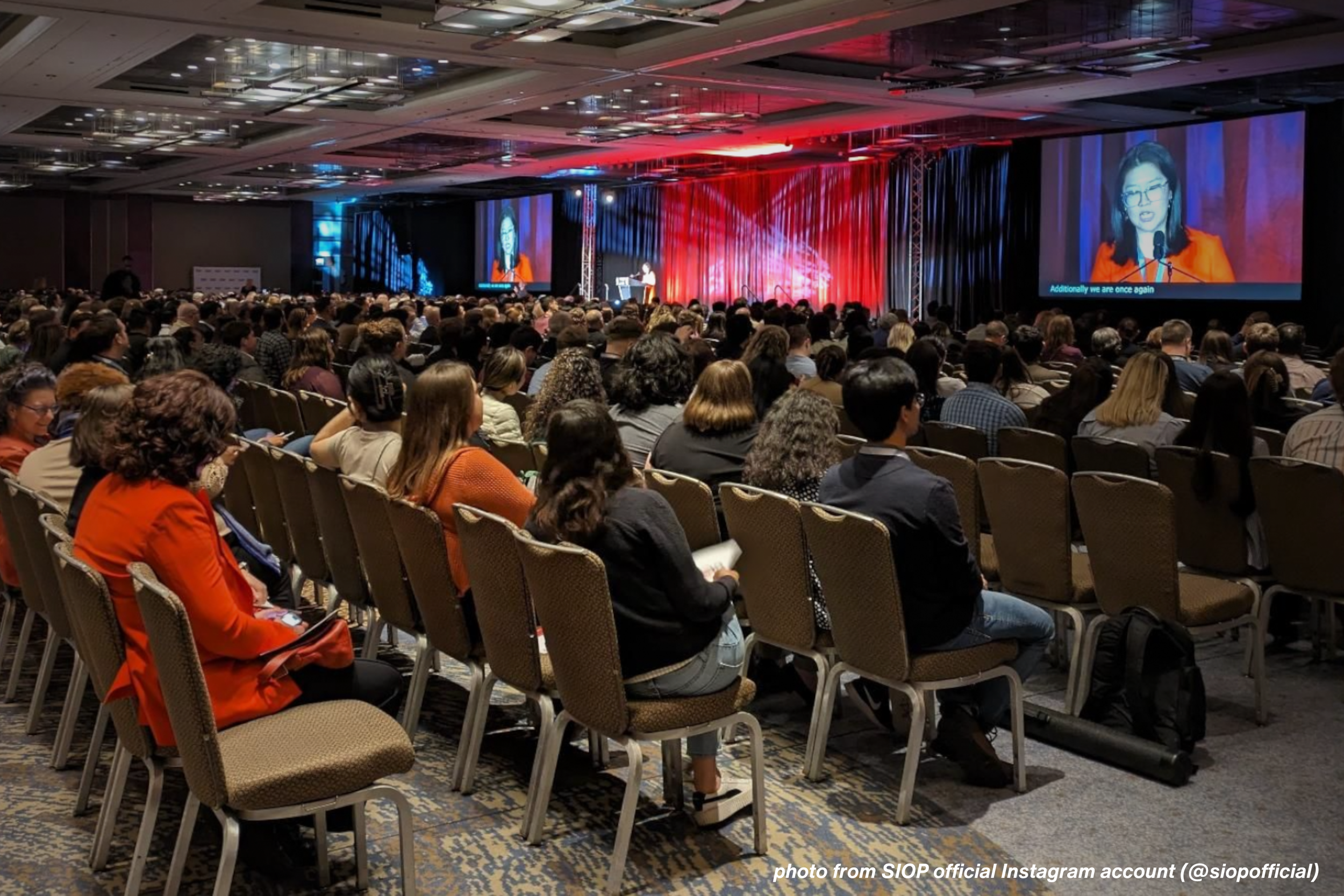The Absolute Best Session at SIOP 2024
SIOP (The Society for Industrial and Organizational Psychology) hosted its annual conference last week in Chicago, bringing together the best thinkers, researchers, and practitioners in the world of people science, talent management, and talent development.
I had many favorite moments at this year’s conference, but the absolute best session (for me) was a session entitled Talent Hackathon: Group Brainstorming for Critical Organizational Issues. The session featured a pretty remarkable line-up of panelists:
Brittany Marcus-Blank, Global Talent Management, Johnson & Johnson (Session Chair)
Silke McCance, Director of Global Talent Development, Proctor & Gamble
Erica Desrosiers, Chief Talent Officer, Acadia Healthcare
Richard Chambers, Director of Talent Management, General Mills
Seth Kamen, VP of Talent Management, EG America
Matthew Dreyer, Head of Talent Management & Lead Talent Partner, Prudential Financial
Michael Ehret, Head of Global Talent Management, Johnson & Johnson
Pamela Congemi, VP of Human Resources, Advanced Sterilization Products
And each panelist talked about a big talent topic they’re thinking about in their respective organizations.
Topics ranged from how we motivate and incentivize hiring managers to think about selecting talent with non-traditional experience and backgrounds... to how we effectively shape an awesome company culture in a hybrid environment... to how we help our talent feel fulfilled broadly in all aspects of life... to how we build skills-based organizations and think about measurement and proficiency of skills.
Big topics!
And it was such a brilliant display of the creativity and passion in our industry that we got to break out into small groups to talk about these topics, share our current practices, and brainstorm a bit on what might be future practices and leading practices in these areas.
I had the opportunity to be part of the skills conversation – a topic that is close to my (and Angela Duckworth’s) heart. And for 30 minutes, a group of eight of us just jammed on the topic. It was unlike anything else that I experienced over the other three days at the conference, and in the slightly-edited words of Logan Roy, “I F’ING LOVED IT!” Energy, different perspectives, tried and true methods, beginner’s mindset... all coming together.
We had some great little “aha” moments as part of the discussion, which I’ll attempt to summarize as well as Darrell Kelly (Talent and Performance Management, Newell Brands) summarized for the group:
Skills aren’t new! We’ve been focused on skills for many years in our industry. If you’re saying, “organizations will focus on skills by 2028,” you’re missing the picture here. We’ve been thinking about skills for a long time, but the intention of calling out skills and talking about them in this way is new.
How Skills connect to Competencies, Capabilities, Experiences, and Behaviors is important to make clear. It’s quite likely that even within your HR function, people may not have consistent understanding of these terms. And if that’s the case, forget about the rest of the organization “getting” it. If you’ve got competency models, how are skills present there? How are skills clear in job descriptions? How are skills clear related to expected behaviors? We have some legending work to do in many organizations to draw these connections if we expect people to start to get what we mean when we talk about skills.
The sequence of how we create a Skills-focused organization is important. When we embark upon a change, we do so in a stepwise fashion with intention. Many organizations are trying to simultaneously define a set of Skills, roll out this taxonomy of Skills, measure people against these Skills, hire based on these Skills, evolve the set of Skills, and more. That’s a lot to do at once. So... sequence it out! Maybe first it’s a focus on what are our skills (should it be 60 or 600? we had numbers all across that spectrum in our group) then you can choose to focus on how we can get people to start evaluating them or talking about them in job descriptions or whatever makes sense for you. I loved hearing about some of the work Wren Murphy and Nina Benson are doing at Uber, where they are asking employees to self-assess on Skills, then also asking for others to rate them, giving us some more nuance in how proficiency is represented.
If we’re really focused on Skills, then focus on Skills! A lot of people are launching Talent Marketplaces... but should they be Skills Marketplaces? Is the point getting people excited about what skills they can apply or what skills they can learn as part of one of these informal, ad hoc assignments?
I left feeling really jazzed about the progress that’s being made, and it opened my eyes to just how differently so many organizations are approaching this.
And that brings me back to why it was my favorite session at SIOP. We’re at our best as practitioners when we can lift up from our day-to-day, look around, and learn from what others are doing. And sure, every now and then it’s nice to put on the glossy presentation of, “look at us and all the great stuff we’re doing!” but it’s also great to get into the pragmatic, nitty gritty of the conversation when we admit, “here’s all the stuff I don’t know, here’s some stuff I’m trying, and what do you think?” and we invite discussion. For at least this one conference participant, that was the thing that’s been giving me energy all week since I left Chicago.
I hope all of us can continue to look for ways to collaborate and learn from each other throughout the year before you come to (my city) Denver next year. And even if you’re not a SIOP person, let me know some talent topics on your mind, as I’d love to help stir up more of these kinds of great conversations.


